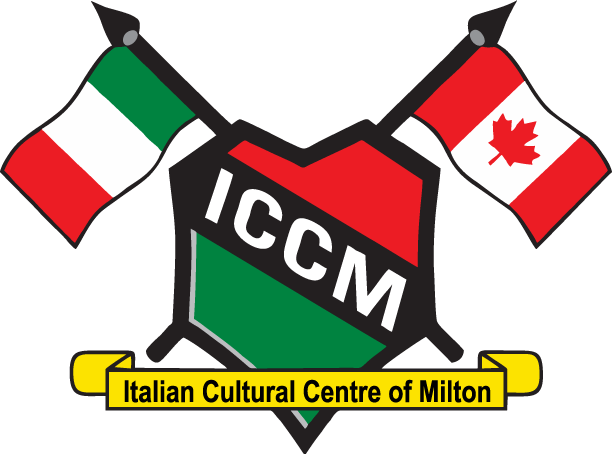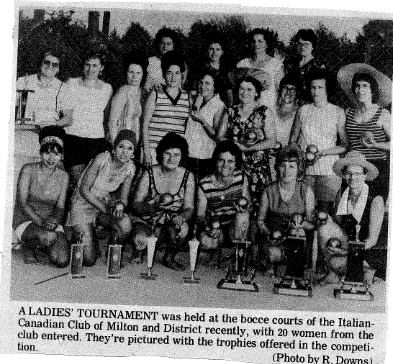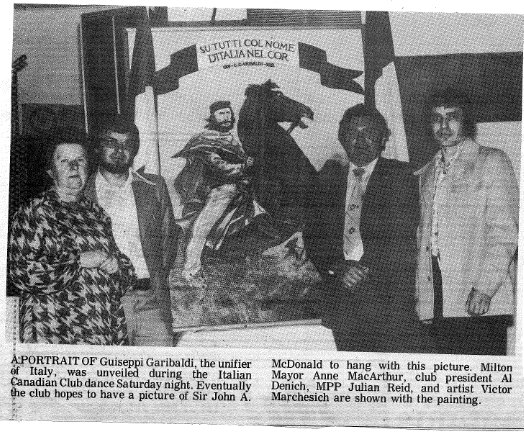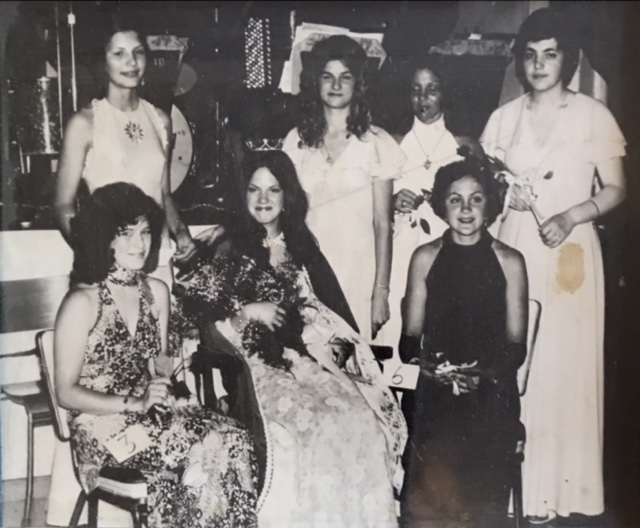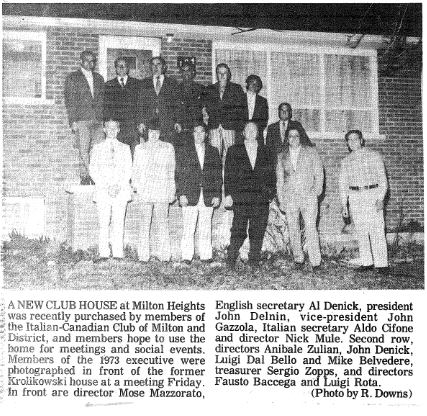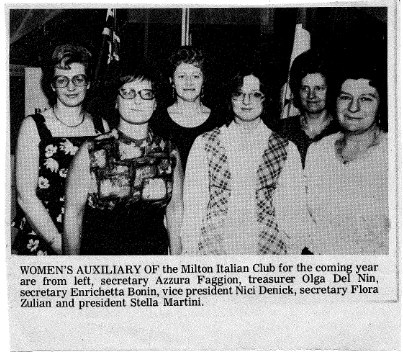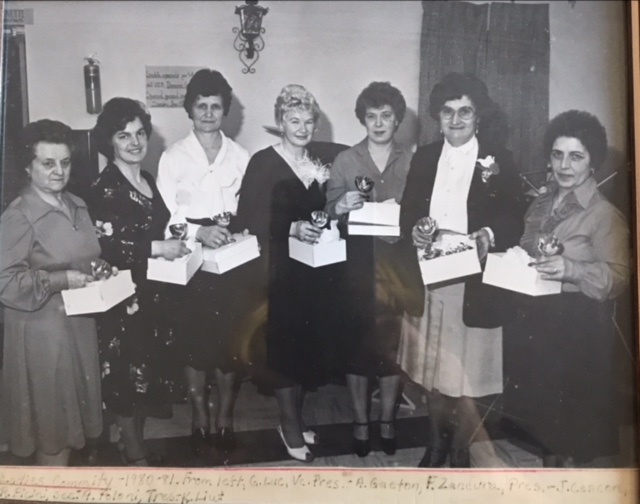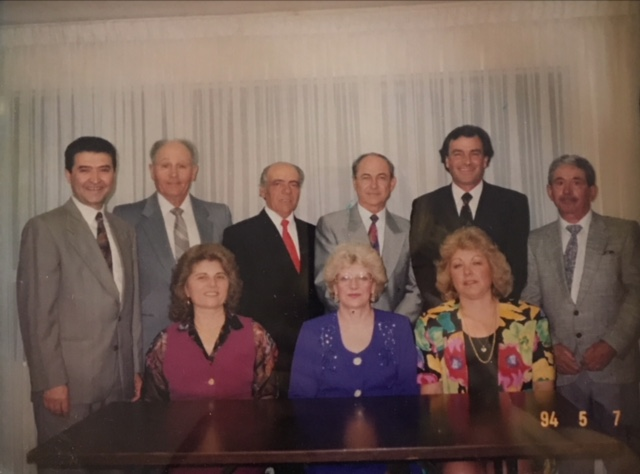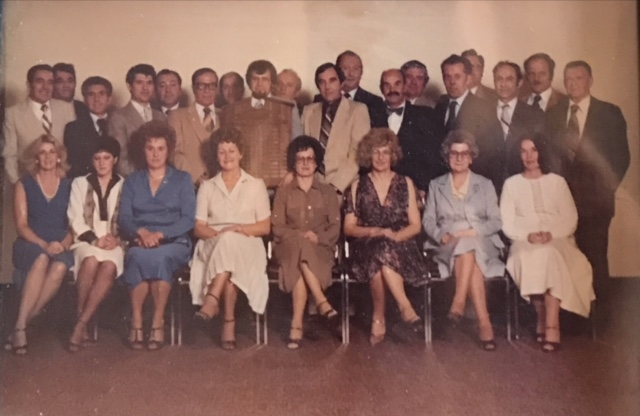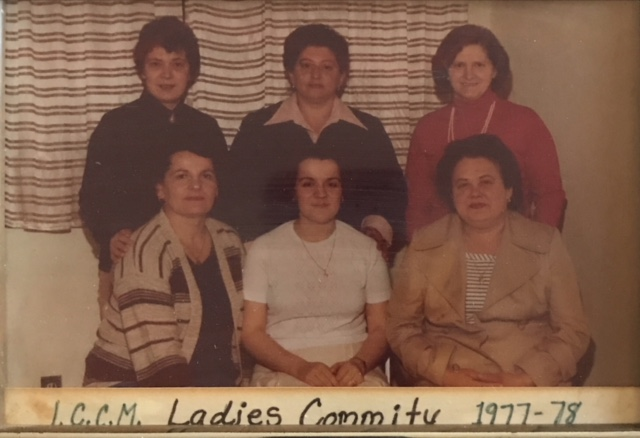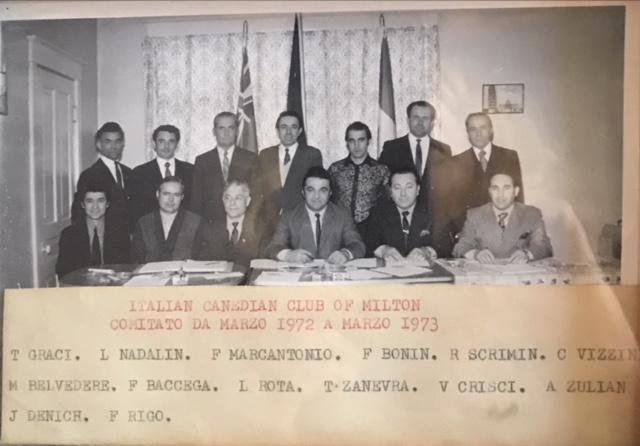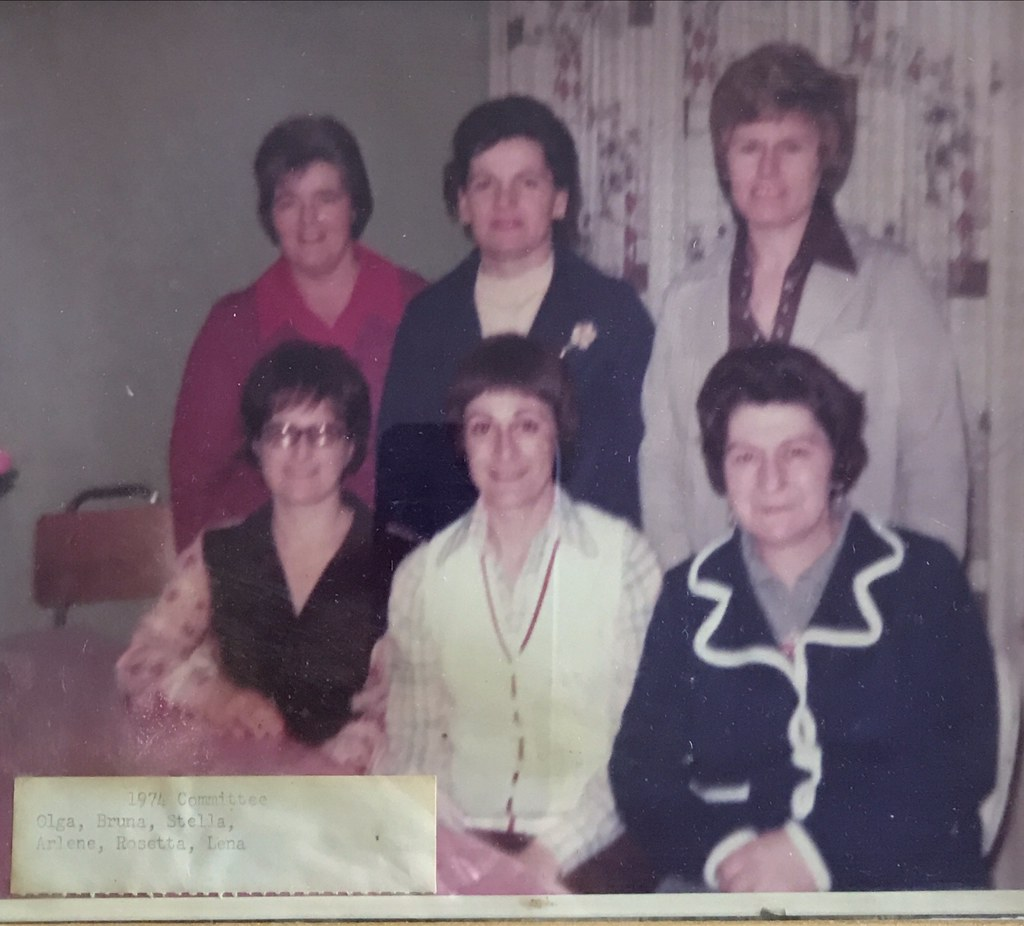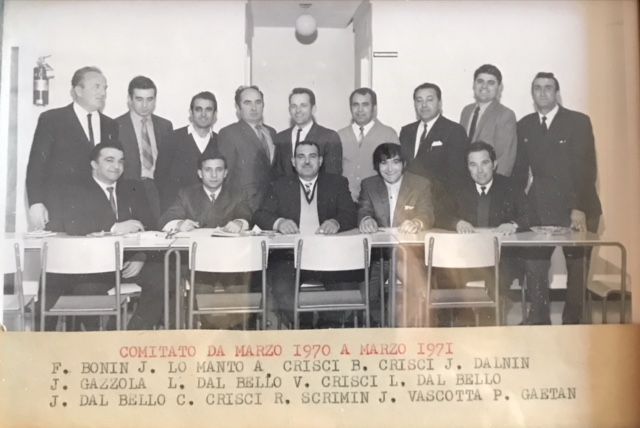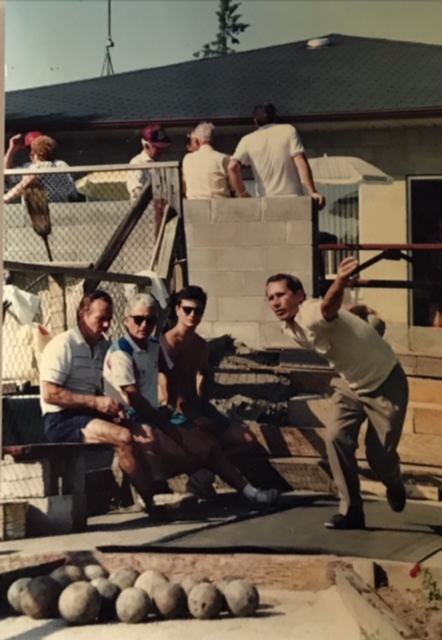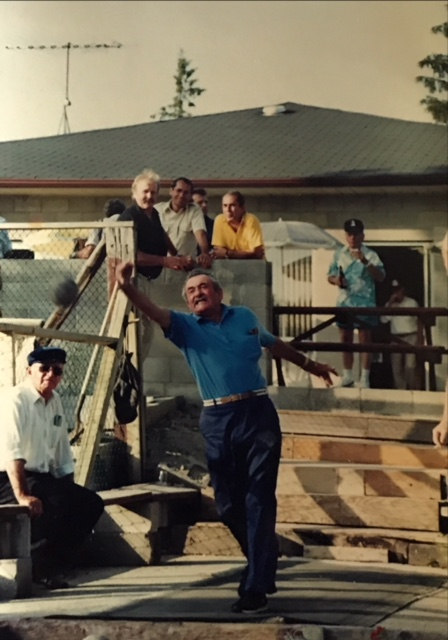History of ICCM
As written by founding member Mr. Al Denich
Between 1905 and 1930 there were Italian families that settled in the Milton area. Here their children integrated and spoke the dialect of their unique areas, as Italy is formed of unique regions all with their own nterpretation of the national language, the language of Dante Alighieri. They continued with their regional traditions at home with their friends and relatives.
World War 2 was extremely hard on these families, especially the ones living in the Milton Heights area.
Post-1945, Milton needed more Italian farm labourers’ masons, carpenters etc., in order to build homes and industry for the Baby Boomers. These new Canadians spoke little or no English and were mainly from the various regions of their beautiful native land. These new Canadians brought their regional cuisine, arts, crafts, sports and music as they settled down and grew their gardens and fruit trees. They sent their children to school but kept their culture at home.
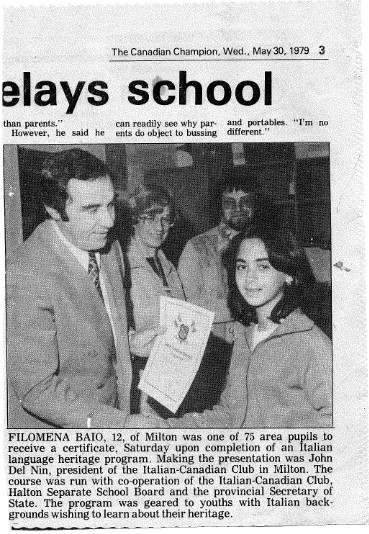
The Year of Change-1971
In 1963 Prime Minister Pierre Trudeau set up a Commission for multiculturalism. Based on Commission’s recommendations, on 8 October 1971, Prime Minister Pierre Trudeau announced multiculturalism as an official government policy. Trudeau stated that no singular culture could define Canada and that the government accepted “the contention of other cultural communities that they, too, are essential elements in Canada.”
A policy of multiculturalism was implemented to promote respect for cultural diversity and grant ethnic groups the right to preserve and develop their own cultures within Canadian society.
In 1973 the executive, with member support, decided to build the present hall and sign the constitution. By this constitution, the executive committee got involved in social, cultural, and sports activities. They followed the Ontario Government Rules and were able to get a liquor license for various social activities, such as dances, bocce tournaments, soccer games, the ICCM Miss Pageant, and the Saturday morning Italian classes that taught the national language of Italy. The women’s auxiliary provided the fine cuisine of Italy. 20 special regions along with their art and crafts that tantalized the public.
So here we are today, 50 years later and the ICCM executive is implementing the ideas of the 1973 constitution so that the future generation can be proud – orgogliosi of the culture that their grandparents brought to our area.
